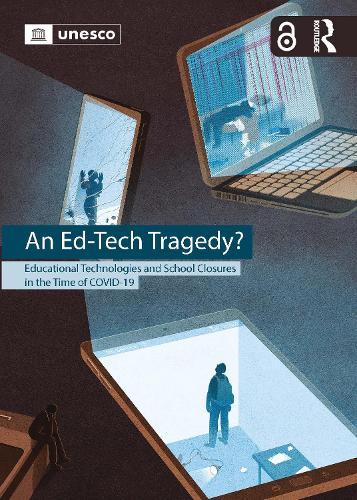Full Product Details
Author: Mark West
Publisher: Taylor & Francis Ltd
Imprint: Routledge
Weight: 1.220kg
ISBN: 9781041123668
ISBN 10: 1041123663
Pages: 656
Publication Date: 10 October 2025
Audience:
College/higher education
,
Professional and scholarly
,
Tertiary & Higher Education
,
Professional & Vocational
Format: Paperback
Publisher's Status: Active
Availability: Not yet available

This item is yet to be released. You can pre-order this item and we will dispatch it to you upon its release.
Reviews
""Challenges views that digital technologies are synonymous with educational equality and progress."" —The New York Times ""The most extensive examination of the global lockdown experience in education."" —The Financial Times ""Groundbreaking and extraordinary. A world-spanning record of the impacts of screen-dependent learning."" —Jonathan Haidt, Thomas Cooley Professor of Ethical Leadership in the Stern School of Business at New York University, USA, and author of The Anxious Generation “Wonderful and important. A warning we ignore at our peril.” —Diane Ravitch, Founder and President of the Network for Public Education “Brings strong evidence of the detrimental impact of digitalization of education on the right to education. Its forceful voice amplifies the chorus of voices opposing the digitalization of education as a replacement to on-site schooling with teachers.” —Farida Shaheed, UN Special Rapporteur on the Right to Education “Boldly resisting the temptation to forget the lessons of the COVID years, this landmark work gives us a sober guide to where new educational technologies can help us, and how they could lead us significantly astray.” —Arjun Appadurai, Elected Fellow of the Royal Anthropological Institute of Great Britain and Ireland “To date, the book represents the most detailed analysis of how the rhetoric of technological solutionism comes to shape both policy debates and specific action on the ground” —Evgeny Morozov, author of Net Delusions and To Save Everything, Click Here “Provides a crucial moral and intellectual compass to direct us away from the ed-tech solutionism that is causing unparalleled exclusion and is in the process of untethering the right to education from that of schooling.” —Payal Arora, Professor of Inclusive AI Cultures at Utrecht University, The Netherlands, Co-Founder of Inclusive AI Lab as well as FemLab, and author of The Next Billion Users and From Pessimism to Promise “An immense achievement, and a hugely critical intervention into debates about the future role of digital technologies in education.” —Ben Williamson, Senior Lecturer at the Centre for Research in Digital Education and the Edinburgh Futures Institute at the University of Edinburgh, UK. “Like the best histories, An Ed-Tech Tragedy? shows us how we have arrived at our present moment, and how we can learn lessons from our past to achieve more equitable and inclusive futures.” —Daniel A. Wagner, Professor of Education and UNESCO Chair in Learning and Literacy at the University of Pennsylvania, USA, and author of Learning and Education in Developing Countries and Learning as Development
""Challenges views that digital technologies are synonymous with educational equality and progress."" —The New York Times ""The most extensive examination of the global lockdown experience in education."" —The Financial Times ""Groundbreaking and extraordinary. A world-spanning record of the impacts of screen-dependent learning."" —Jonathan Haidt, author of The Anxious Generation
Author Information
Mark West is an education specialist at UNESCO, the United Nations Educational, Scientific and Cultural Organization, where he researches and writes about education with a special focus on technology. He advises governments, international organizations and civil society groups about opportunities and risks for education in an age of accelerating digital change. Prior to joining UNESCO, Mr. West worked as a journalist, history teacher and teacher trainer. He is a graduate of Stanford University and a former Fulbright Fellow. In addition to an An Ed-Tech Tragedy?, Mr. West is the author of numerous UNESCO publications about technology and education, including I’d Blush if I Could and Reading in the Mobile Era. I'd Blush if I Could prompted Apple and other large technology companies to make changes to the way AI voice assistants project gender. It clarified how education can help close digital gender divides and was praised by experts and media outlets around world. Reading in the Mobile Era brought international attention to the ways governments, schools and families can leverage inexpensive mobile technologies to help advance literacy.



